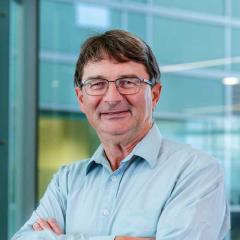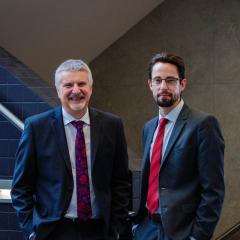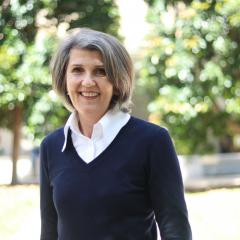UQ’s School of Health and Rehabilitation Sciences offer four week, interprofessional, intercultural placement (IPIC) opportunities in Vietnam and Timor-Leste to final year occupational therapy, physiotherapy and speech pathology students.
The placements allow students to practically apply their learnt knowledge in a global healthcare setting, gain cultural perspective, and provide much needed support to local communities.
With the language barrier as a challenge, two UQ students found they could still develop relationships and treat patients using very few words.
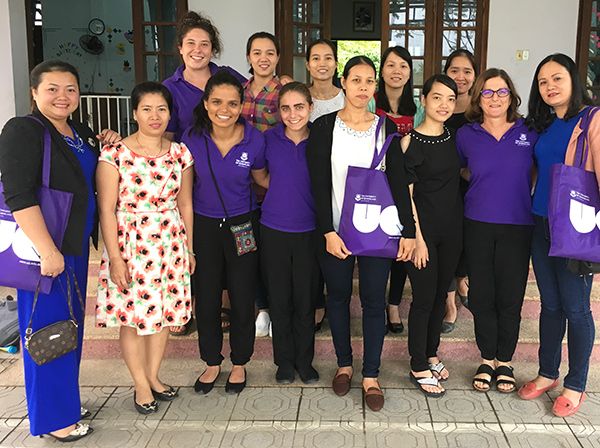
Occupational therapy student Sally Ennever was part of the IPIC group who travelled to Vietnam in May this year.
“The relationships I made with children, teachers and families inspired and motivated me. It’s pretty special when you don’t speak the same language but you know that the bond you have with one another is the driving factor of a positive experience.”
Students from across the three disciplines worked together to provide culturally appropriate care and recommendations for children and their families with varying needs who lived in Hue, Vietnam. They visited homes, schools, early intervention centres and orphanages and provided rehabilitation to increase engagement and participation in the day to day activities of communities.
For Sally there were many memorable experiences, however one in particular stood out. “We were asked by a teacher to create an activity that every child in her class would engage with and enjoy. Each child had varying needs, so achieving this was challenging. After discussion with the teacher, we decided to have parachutes made by a local tailor. The next day the class sat in a circle, held the parachute and engaged in this activity as a group.
“They absolutely loved it. We were so happy to see all the children having fun, but it was the teacher’s overwhelming positive reaction that made it for me.”
During the placements students are taught the importance of teamwork and using sustainable strategies and interventions. They are encouraged to source resources locally and collaborate closely with teachers and carers to build on activities currently in place.
“We were in Vietnam for four weeks. If something broke the week after we left, we had to ensure it could be replaced at little or no expense. This makes you think outside the box.”
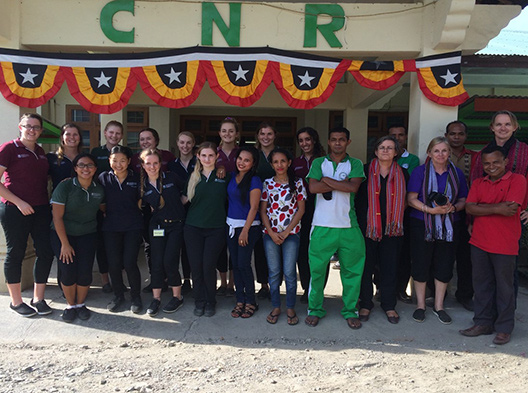
Speech pathology student Bridget Greathead was part of the interprofessional team who worked in the Timor-Leste’s Centre for National Rehabilitation with a diverse and complex caseload, aged between 20 months to 80 years.
“I enjoyed working with the people of Timor-Leste. Learning from them, developing an understanding and respect for the way they work—which is more of a relationship centred model of care—was so rewarding.
“An experience I won’t forget was with a child with a disability who was not responding to any interactions or showing communication intent. Due to the stigma of disability, she had not been exposed to play or language with other children or even adults.
“By the end of the placement, following consistent interactions with students and centre staff twice daily, she was walking with assistance, playing with other children, vocalising, demonstrating joint attention and making clear requests. Such a huge change in her demeanour was fantastic to see and we were able to equip the staff with games and incorporate group activities into therapy to help her continue to reach her targets.”
Bridget’s placement experiences in Timor-Leste highlighted the impact she could have on a person’s quality of life by bringing allied health services to people in need.
“This placement reinforced my passion for speech pathology, across all areas of practice and across the lifespan. Once I have finished my studies I would love to work in Timor-Leste again, as well as remote and rural areas of Australia.”
The Australian Government’s New Colombo Plan Mobility Program funded the students placements in Vietnam and Timor-Leste. The aim of the scholarships is to increase knowledge of the Indo-Pacific in Australia.

